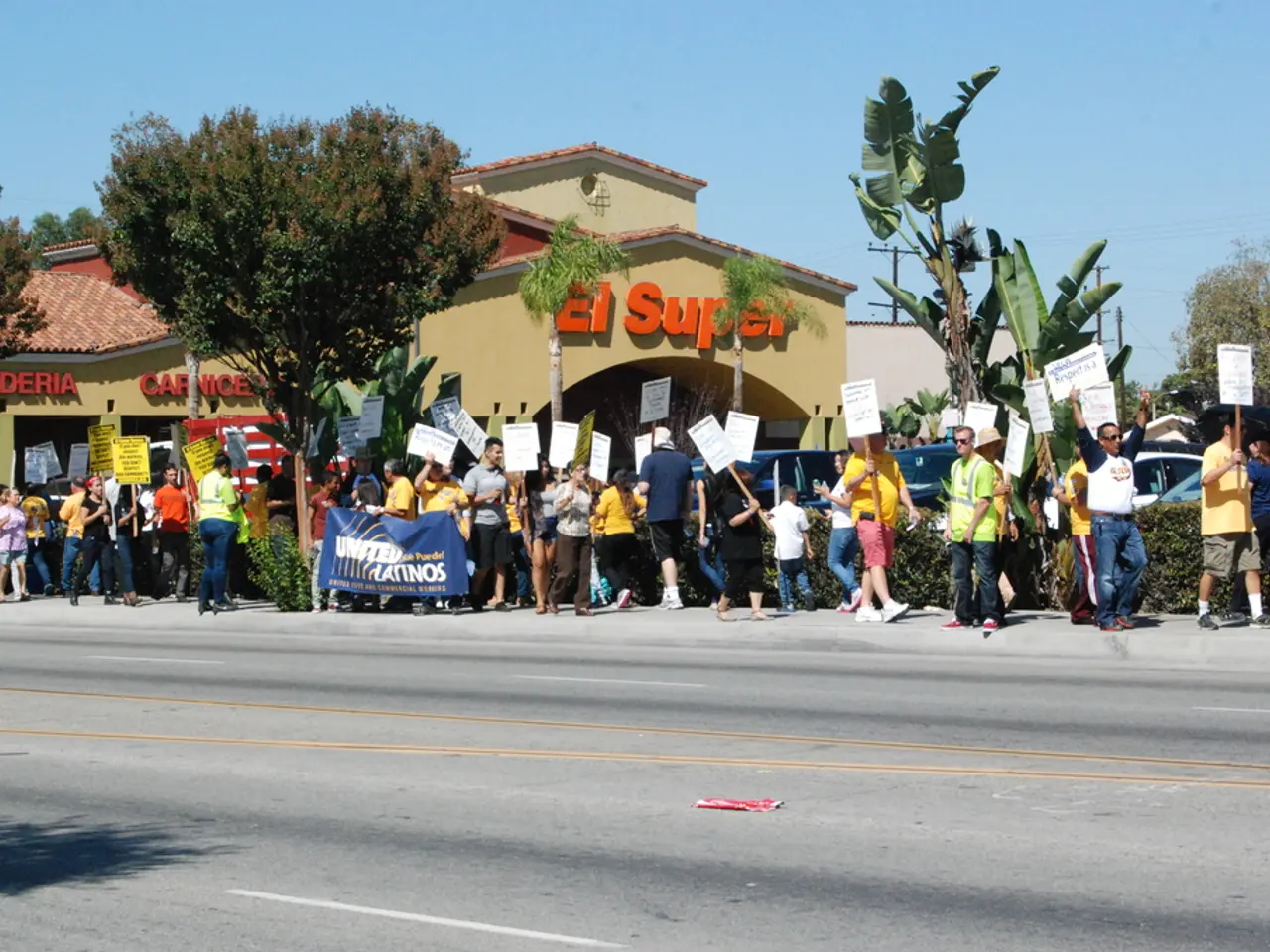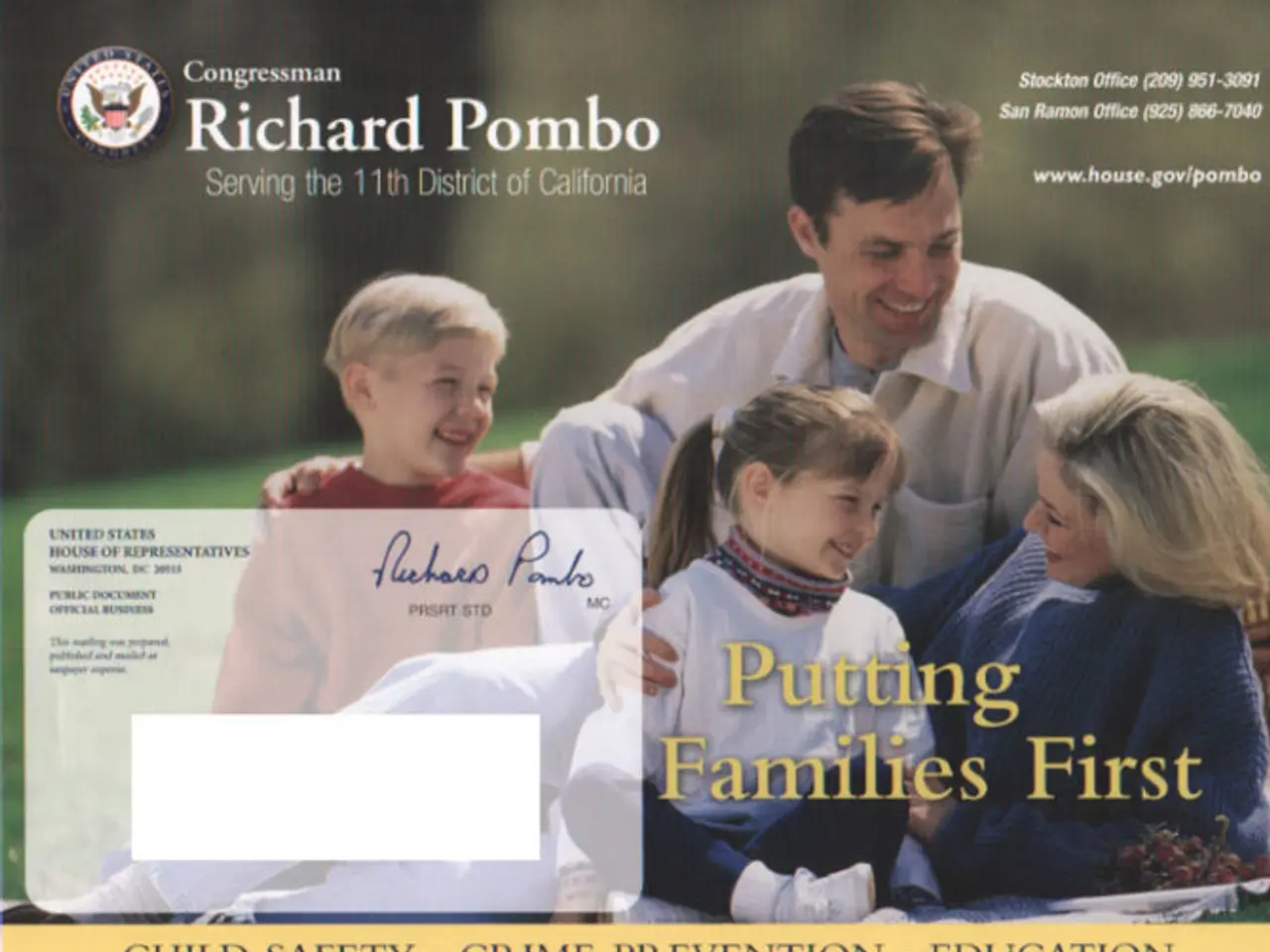Seattle's Proposition 1, which finances the 'democracy voucher' initiative, gains approval
Seattle's Democracy Voucher Program Continues with Voter Approval
Seattle's democracy voucher program, a unique initiative that began in 2017, has received a green light from voters in the initial tally of Tuesday's election, setting the course for its continued operation. Proposition 1, which funds the program, saw a 55.6% approval rate, ensuring its future in Seattle's local elections.
The program, endorsed by various Democratic Party groups, nonprofits, and politicians like U.S. Rep. Pramila Jayapal, mails four $25 vouchers to each voter, each city election cycle. This innovative approach has significantly democratized campaign donations, lowered barriers to entry for candidates, and increased overall donor participation.
Key impacts of the program include a reduction in large contributions, a rise in donor participation, and increased diversity among candidates. Contributions over $250 in Seattle local elections have dropped by 93% since the program’s inception, indicating less influence of big money donors. The number of residents using democracy vouchers more than doubled from 20,727 in 2017 to 48,071 in 2021, and the percentage of Seattle residents contributing to local campaigns rose dramatically from about 1% before the program to nearly 10% by 2021.
The program has also contributed to a larger share of women and people of color winning elections. Before the program, 30% of winning candidates were people of color and 50% were women; after implementation, these numbers climbed to 58.3% and 66.7% respectively. The percentage of Seattle voters of color contributing to local campaigns increased from under 1% in 2013 to 8% in 2021.
By providing every eligible adult Seattle resident with four $25 vouchers to donate, candidates without wealthy backers can raise meaningful funds, encouraging more diverse and competitive candidacies.
However, critics argue that the program may not fully curb outside spending and that its funding via property tax continues to be debated. Still, the evidence points to the democracy voucher program having successfully expanded democratic participation, reduced reliance on big donors, and lowered the bar for candidate entry in Seattle’s local elections.
In other election news, Katie Wilson is leading the race for Seattle mayor with 46% of votes tallied, ahead of incumbent Bruce Harrell at nearly 45%. The primary elections for three Seattle City Council seats are ongoing, serving as a barometer for voter satisfaction with City Hall's overall direction.
The program is paid for with property taxes and costs the average Seattle homeowner about $13 a year. As of now, about 54% of the money spent has gone to candidate campaigns and 46% to administrative costs. Mayor Bruce Harrell, City Council member Alexis Mercedes Rinck, Katie Wilson, and Joe Mallahan are using vouchers in their reelection campaigns this year.
[1] Brennan, C., & Hess, A. (2021). Evaluating the Impact of Seattle’s Democracy Voucher Program. Center for American Progress. [2] KIRO 7 News. (2021, August 3). Seattle's democracy voucher program renewed for another 10 years. KIRO 7. [3] Seattle Times Editorial Board. (2019, November 5). Seattle's democracy voucher program is working. Seattle Times. [4] Seattle Times Editorial Board. (2021, August 2). Seattle's democracy voucher program renewal is a good bet. Seattle Times. [5] Seattle City Council. (2021). Democracy Voucher Program. Seattle City Council.
- The democracy voucher program, initially launched in Washington State's Seattle in 2017, has received sustained support from voters, securing its continuation in local elections.
- The unique program, which includes mailing four $25 vouchers to each voter in each election cycle, has significantly impacted local politics by democratizing campaign donations and increasing diversity among candidates.
- Keen observers of Seattle's general news and policy-and-legislation segments will note that the program has led to a decrease in large contributions and an increase in the number of residents participating in local campaigns, as well as an uptick in the representation of women and people of color in elected positions.
- City Council member Alexis Mercedes Rinck, Katie Wilson, Mayor Bruce Harrell, and Joe Mallahan are utilizing the democracy vouchers in their reelection campaigns this year, demonstrating its continued relevance in Seattle's political landscape.






